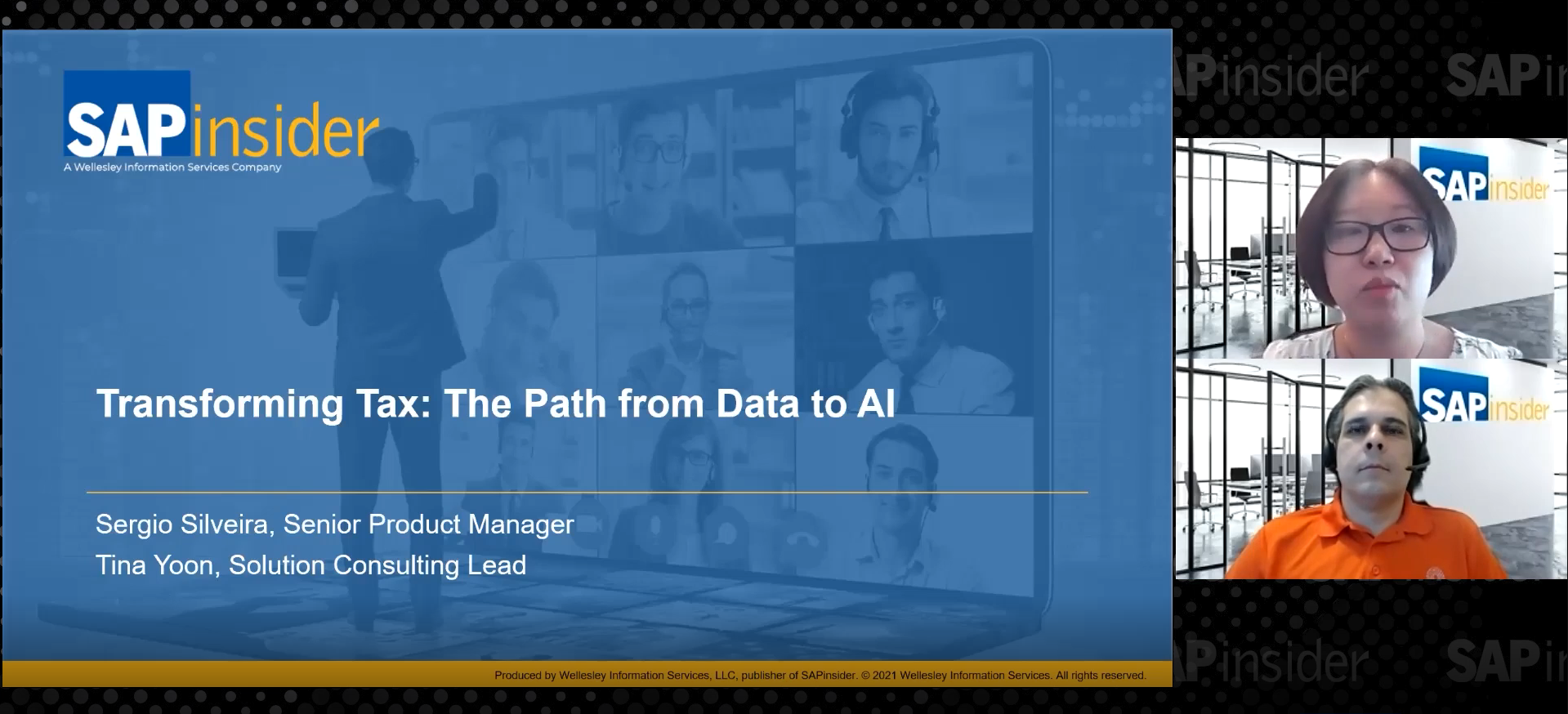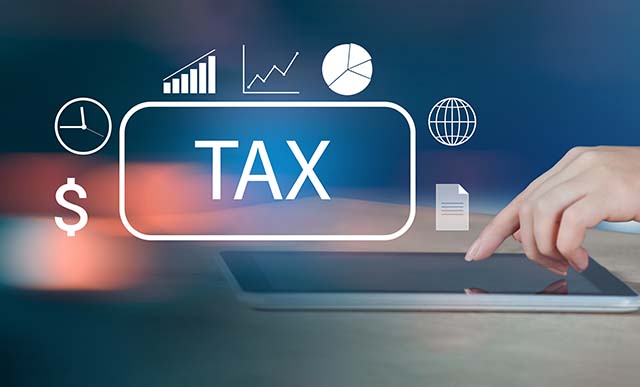Growing Need for Sales Tax Compliance Automation
A Conversation with Tim Roden at Sovos
Meet the Experts
Key Takeaways
⇨ Current sales tax compliance needs are changing rapidly as organizations face growing exposure to unforeseen tax obligations, fines, audits, and poor customer experience due to economic nexus complexity.
⇨ Constantly changing external compliance requirements and digital transformation initiatives also put immense pressure on the tax teams.
⇨ Cloud-based tax automation integrations with S/4HANA, such as Sovos Global Tax Determination for SAP S/4HANA and SAP S/4HANA Cloud, enable sales tax compliance automation and allow organizations to focus resources on core business activity.
Economic Nexus Complexity is Increasing Across the U.S., Creating Challenges for Tax Teams
Sales and use tax compliance is growing more burdensome for organizations that are conducting business in the U.S. due to complex economic nexus mandates. Many states are expanding their sales tax jurisdiction to include out-of-state companies with a certain level of sales or transactions within the state. Multinational organizations selling into the U.S. markets need greater visibility into tax obligations on cross-border transactions that trigger economic nexus conditions.
Sales and use tax compliance is a complex and time-consuming process, and we see this challenge reflected across our SAPinsider community. Data from our SAPinsider Trends in Tax Benchmark Report indicates that sales and use tax is one of the top regulatory updates most affecting the workloads of tax teams. In addition, products and services are becoming more taxable, requiring organizations to implement tax solutions for more accurate product taxability determination. As a result, organizations are increasingly evaluating cloud-based tax automation solutions, such as Sovos Global Tax Determination for SAP S/4HANA and SAP S/4HANA Cloud, that enable sales tax compliance automation.
SAPinsider sat down with Tim Roden, Solutions Principal at Sovos, to discuss how SAP organizations leverage cloud-based tax automation solutions to provide tax teams with a more robust sales & use tax compliance framework.
Explore related questions
Link to Video Technology Insight: Video Q&A with Tim Roden, Solutions Principal at Sovos.
Real-time Content Updates are Critical for Sales Tax Compliance
Up-to-date tax content updates are critical for organizations that need to determine real-time product taxability and remain compliant with economic nexus laws in each state. Additionally, as business demands evolve to support changing customer preferences, organizations must adapt sales tax solutions to align with current needs. This makes compliance much more challenging for organizations with manual workflows.
Roden notes, “When you file taxes, separating tax obligation by jurisdiction becomes a manual process. It’s the most visible pain point that we see with organizations during a monthly or quarterly compliance process. It’s challenging if you’re not using automated solutions.”
The right sales tax automation solution will fit the specific business needs of an organization to ensure timely and correct remittance of taxes on all products sold. SAP customers view the transition to SAP S/4HNA as an opportunity to evaluate tax automation initiatives within an overall finance transformation.
Integrate Sales Tax Automation with SAP S/4HANA
Economic nexus product taxability is one area where S/4HANA can help businesses ensure they are compliant with changing laws. Roden outlines how Sovos enables customers to move sales tax processes to SAP S/4HANA, “we have certified integrations with SAP S4/HANA, and SAP ECC, so we can help move that portion of an organization’s business and apply the tax rules correctly. All transactions running through S/HANA are also running through the Sovos Global Tax Engine, connecting to legacy systems and batching data. So despite running legacy systems, this organization could have one consolidated view of all its tax obligations. They are also summarizing their data from these legacy systems to get into SAP Central Finance.”
The benefits of integrating sales and using tax compliance automation with SAP S/4HANA include:
- Improved visibility into all aspects of tax compliance
- More accurate and timely filings
- Reduced compliance costs
- Greater efficiency and effectiveness in tax management
When configured correctly, tax teams can automate sales tax calculations, efficiently track sales tax rates and rules, manage exemption certificates, and file sales tax electronically. In addition, by automating sales & use tax compliance, organizations can free up resources to focus on other priorities, such as an ongoing digital transformation across the finance and accounting functions. Cloud-based sales tax solutions integrating with S/4HANA are vital for avoiding significant customer dissatisfaction and potential cash flow risks. Roden highlights the growing cost of non-compliance, “It’s really important to your customer relationship and your business reputation to make sure that when you apply tax on a transaction to a customer of yours, you’re doing it correctly. We’ve seen instances with clients where they’ve come to us because they’ve lost business because they have consistently provided a poor experience for their customers.” says Roden. Integrating sales and use tax automation with SAP S/4HANA can help businesses improve compliance, provide better customer experience, and focus on their core business.
What this means for SAPinsiders
Here are some key takeaways that SAPinsiders should keep in mind as organizations consider integrating sales tax automation solutions with SAP S/4HANA:
Migrating to SAP S/4HANA allows organizations to manage sales tax more efficiently. A move to an intelligent ERP financial system, such as SAP S/4HANA Finance, provides a transformative opportunity to modernize core business processes. Organizations should rethink their approach to sales tax compliance and indirect taxes overall with a S/4HANA migration. Improved efficiency and accuracy are the priorities for any sales tax compliance solution upgrade, as tax managers and IT leaders must anticipate future needs.
Prioritize product taxability needs in different states when evaluating sales and use tax compliance automation solutions. Many cloud-based sales tax solutions offer a comprehensive set of features that can help manage sales and use tax compliance across several jurisdictions. Additionally, these solutions are constantly updated with the latest regulatory changes, so businesses can be confident that their solution will meet all requirements. Factors such as business size, business type, and sales volume help inform potential core use-cases and define functional requirements for effective compliance.
Create a long-term plan for solutions integrations and training that includes partners with deep knowledge of global tax management. The current environment for human capital is disruptive to maintaining day-to-day operations while executing financial transformation initiatives. The transition to SAP S/4HANA will require tax and IT professionals to collaborate with implementation partners and invest in training for ongoing functionality updates to keep pace with rapidly changing regulations.





